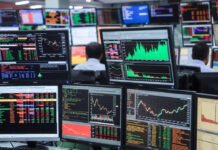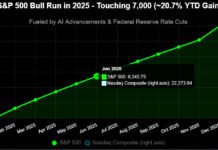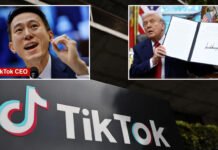Washington D.C. | November 1, 2025
In a world dominated by digital chaos, economic uncertainty, and rising geopolitical tension, a new Pew Research Center global survey reveals that misinformation, economic instability, and terrorism are now viewed as the three greatest global threats by citizens across 35 countries.
The survey, conducted between July and September 2025, reflects a growing sense of insecurity — not only from traditional threats like war or climate change but from the digital and economic challenges shaping modern life.
“The data show a world where truth is under siege and economic anxieties cut across borders,” said Dr. Richard Wike, Director of Global Attitudes Research at Pew.
📊 Top Three Global Concerns
According to the Pew report, 76% of respondents identified misinformation and fake news as a “major threat” to their societies — the highest percentage recorded since Pew began tracking this topic in 2018.
Economic instability followed closely, with 72% citing inflation, unemployment, and market volatility as major global dangers. Terrorism ranked third, with 68% of participants voicing renewed fears of extremist attacks amid rising regional conflicts.
💻 Misinformation: The Digital Epidemic
The report underscores that the misinformation crisis has become an existential global challenge, fueled by social media algorithms, deepfake technology, and politically motivated disinformation campaigns.
Countries like India, Brazil, and the Philippines reported the highest concern over fake news, with citizens expressing deep frustration about the spread of manipulated content online.
“It’s harder than ever to know what’s real and what’s not,” said Maria Santos, a teacher from São Paulo, quoted in the Pew summary. “People are losing faith in institutions — and in each other.”
💰 Economic Anxiety on Every Continent
The global economic landscape continues to be shadowed by inflation, debt crises, and widening inequality.
Respondents in developing economies like Nigeria, Indonesia, and Pakistan cited rising food and fuel prices as their biggest day-to-day concerns, while people in wealthier nations such as Germany and Japan worried about stagnant growth and automation-related job losses.
According to Pew, four in five respondents said they expect their country’s economy to “get worse before it gets better.”
“Economic insecurity is the glue binding all other anxieties together,” explained Dr. Wike. “When prices rise and jobs disappear, societies become more vulnerable to populism and misinformation.”
💣 Terrorism: A Persistent Shadow
Despite global counterterrorism cooperation, the fear of terrorism remains deeply entrenched.
The survey noted spikes in concern particularly in Middle Eastern, African, and European countries, where recent attacks and insurgencies have revived memories of earlier global crises.
Notably, younger respondents (aged 18–29) were less likely to cite terrorism as a top fear than those over 50 — suggesting generational shifts in perceived risk priorities.
🌐 Regional Variations in Threat Perception
North America: Misinformation and political polarization dominate public fear.
Europe: Economic instability is top concern, especially in post-recession economies.
Asia: Balanced fears between misinformation and climate change.
Middle East & Africa: Terrorism and unemployment remain dominant issues.
Interestingly, climate change — once the top global threat in Pew’s 2021 survey — dropped to fifth place, replaced by cyber threats and economic instability.
📈 What the Findings Mean
The 2025 survey paints a portrait of a digitally anxious, economically strained world, where truth itself has become a contested territory.
Analysts believe the findings could shape policy agendas in upcoming international summits, especially around AI regulation, cyber security, and global economic cooperation.
“If misinformation is the disease of our age,” said Dr. Amanda Lee, a communication scholar at Oxford University, “then education and transparency must be the vaccine.”
















